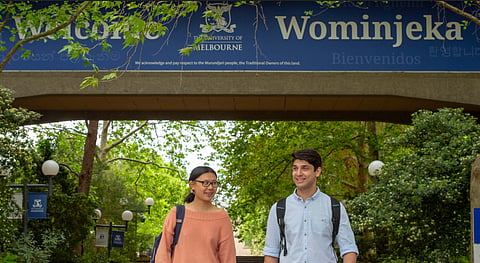India-Australia collaboration: University of Melbourne official shares thoughts
India and Australia share strong ties in education and research. What opportunities do you foresee for students and professionals through this collaboration?
Our university’s global partnership model focuses on long-term investment and mutually beneficial partnerships that create multiple pathways and options for as many students as possible to undertake a University of Melbourne experience.
We will continue to work in partnership with our colleagues in India, curating significant research relationships, developing grants, co-authoring publications and executing significant research projects. To assist in these endeavours, the university has and will continue to develop a range of formal programmes to support student and research training engagement in India and with Indian institutions.
How will the Centre contribute to addressing common challenges such as climate change, public health, or sustainable development in both countries?
For over 16 years we have worked collaboratively with Indian academic institutions and governments to ensure that a shared approach to cutting-edge technology and research can have the greatest impact possible in both countries.
The university has partnered in India in areas such as education, sustainability, agriculture, water management and much more, and the Global Centre will further enhance opportunities for collaboration and advancement in our transnational research.
Additionally, policy-specific institutes like the university’s Melbourne Disability Institute and Nossal Institute have led substantive, interdisciplinary partnerships with Indian counterparts to explore critical issues in health systems and bioscience research.
The University of Melbourne is also home to two national Asia-focused institutes, providing thought leadership regarding Asia and India-specific engagement for Australians. The Australia India Institute (Aii) and Asialink have been central to the university’s commitment to engaging within India and the broader region of Asia and the Pacific and will seek to utilise the Global Centre to advance their programmes and initiatives.
Can you highlight any specific areas of collaboration that the University of Melbourne plans to focus on with Indian institutions?
To date, the university has partnered through research in areas such as sustainability, healthcare (including disability inclusive healthcare), education, agriculture, and more.
The university will continue to develop innovative collaborative models for teaching and learning programmes, building capacity and articulating global leadership in this area. The University of Melbourne will foster support for people-to-people linkages with India — our students, our alumni and the diaspora community.


